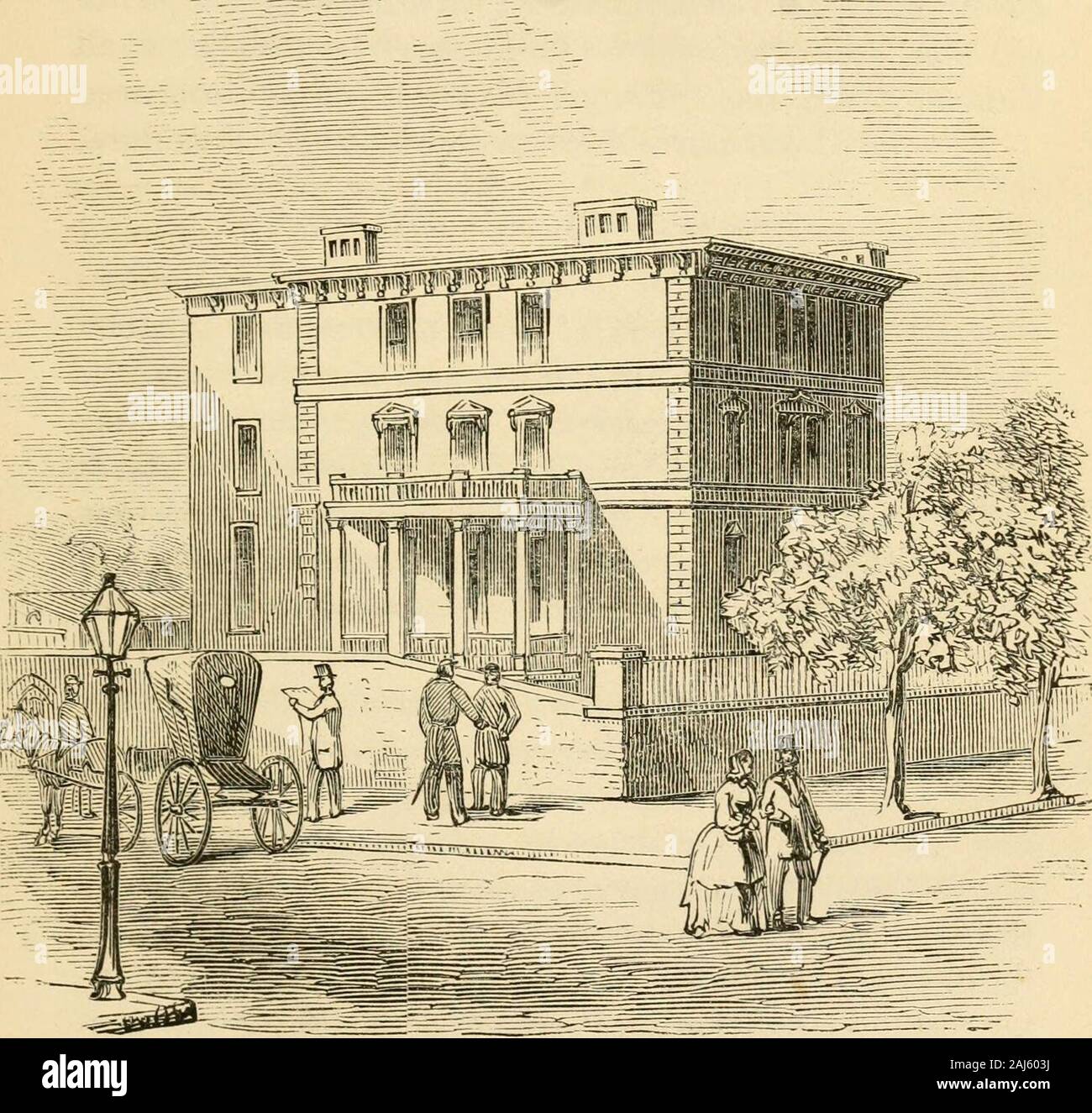Gen Nathaniel Lyon, and Missouri in 1861 : a monograph of the great rebellion . ature. Dreading the intoleranceand the oppression of the oligarchy, the opponents ofsecession (other than the Republicans) clung to the Crit-tenden compromise as the only safe method of explain-ing their position against the secession furore. It is dif-ficult to obtain the records of any meeting, outside of thecity of St. Louis, where a stand for unconditional Union-ism was taken, where the genuine Union feeling wasexpressed; and I am confident no such meeting was everheld. To those not in the secret, it seemed as

Image details
Contributor:
The Reading Room / Alamy Stock PhotoImage ID:
2AJ603JFile size:
7.1 MB (559.4 KB Compressed download)Releases:
Model - no | Property - noDo I need a release?Dimensions:
1621 x 1541 px | 27.4 x 26.1 cm | 10.8 x 10.3 inches | 150dpiMore information:
This image is a public domain image, which means either that copyright has expired in the image or the copyright holder has waived their copyright. Alamy charges you a fee for access to the high resolution copy of the image.
This image could have imperfections as it’s either historical or reportage.
Gen Nathaniel Lyon, and Missouri in 1861 : a monograph of the great rebellion . ature. Dreading the intoleranceand the oppression of the oligarchy, the opponents ofsecession (other than the Republicans) clung to the Crit-tenden compromise as the only safe method of explain-ing their position against the secession furore. It is dif-ficult to obtain the records of any meeting, outside of thecity of St. Louis, where a stand for unconditional Union-ism was taken, where the genuine Union feeling wasexpressed; and I am confident no such meeting was everheld. To those not in the secret, it seemed as if secessionin Missouri was an accomplished fact; and so certainwere Jackson, Reynolds & Co. that the people woulddecide in their favor, that they willingly submitted thequestion of a convention to a vote of the State. ARRIVAL OF CAPTAIN LYON AT THE ARSENAL. On the 6th of February, 1861, there arrived at theSt. Louis arsenal a company of regulars from Fort Riley, all old soldiers, and superbly disciplined. This company(eighty enlisted men) added materially to the force to. THE BRANT MANSION FREMONTS HEADQUARTERS. AND MISSOURI IN 1861. 57 whose charge was committed the safety of the arsenal.But the great demand and expectation of the Unionistswere not to be so much gratified by the numericalstrength Government was crowding into that valuableplace as in the calibre of the officer whose commandsthose men obeyed. His arrival, announced to the Unionclubs, was greeted with an enthusiasm that welled forthfrom the deepest recesses of the loyalists soul; and thesecessionists, in Berthold mansion and State capitol, learned to fear and appreciate Nathaniel Lyon. EARLY LIFE AND CAREER OF LYON. Nathaniel Lyon was born in Ashford, Windhamcounty, Connecticut, July 14, 1819. He was the sonof Amasa Lyon, a man of some prominence in his county, and for many years a magistrate. The mother ofNathaniel belonged to the Knowlton family, and ances-tors and relatives on either side had been distinguishedi